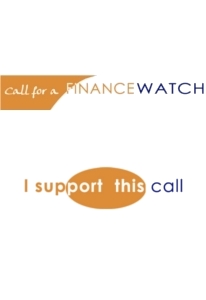We, as European elected officials in charge of regulating financial markets and banks, can see every day the pressure exerted by the financial and banking industry to influence the laws governing it.
There is nothing extraordinary if these companies make their point of view known and have discussions on a regular basis with legislators. But it seems to us that the asymmetry between the power of this lobbying activity and the lack of counter-expertise poses a danger to democracy. Indeed, this lobbying activity should be balanced by that of others. When it comes to the environment or to public health, non-governmental organizations (NGOs) have developed a counter-expertise which reports a different point of view compared to the one of corporations. The same happens when it comes to social policies and industrial relations, where the voice of employers is balanced by the one of trade unions. These disputes allow elected officials to hear opposite points of reasoning. But when it comes to finance, this is not the case. Neither trade unions nor NGOs have developed an expertise capable of countering the banks expertise.
Therefore, there is currently no sufficient counter-power in civil society.
This absence does not prevent us from developing our own expertise, independent from industry, and to do our work, but this asymmetry constitutes in our eyes a danger to democracy.
Because this asymmetry lies in a context of close proximity between political and financial elites. In the U.S. the connections between Goldman Sachs and the government are known. But in Europe this proximity is by no means smaller. This proximity contributes to a unilateral attention to the argumentations of the financial industry and it certainly hinders the ability of politicians to take decisions free from influences. As it happens, the lack of an adequate political response to the crisis of the financial system can feed any form of populism, based more on emotion than on reason.
As European elected officials in charge of financial and banking regulations, we therefore call on civil society (NGOs, trade unions, academic researchers, think-tanks…) to organize to create one (or more) non-governmental organization(s) capable of developing a counter-expertise on activities carried out on financial markets by the major operators (banks, insurance companies, hedge funds, etc …) and to convey effectively this analysis to the media.
As elected officials from different political families we may differ on the measures to be taken.
But we are all together in wanting to create greater awareness in the public opinion on this risk for the quality of democracy.
We invite all the Members of the European Parliament and the Members of national parliaments to join our call.


